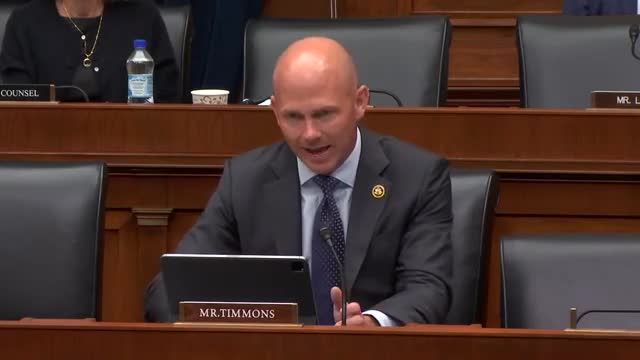AI Revolutionizes Lending by Expanding Access to Credit
July 23, 2024 | Financial Services: House Committee, Standing Committees - House & Senate, Congressional Hearings Compilation

This article was created by AI summarizing key points discussed. AI makes mistakes, so for full details and context, please refer to the video of the full meeting. Please report any errors so we can fix them. Report an error »

In a recent government meeting, discussions centered on the transformative potential of artificial intelligence (AI) in the financial services sector, particularly regarding lending practices. Proponents highlighted AI's ability to enhance objectivity and transparency in decision-making processes, which could help mitigate claims of discrimination in lending.
One key point raised was the capacity of AI to process vast amounts of data, potentially allowing financial institutions to make more informed lending decisions and expand access to credit for underserved populations. Advocates argued that with the implementation of unbiased algorithms and rigorous oversight, AI could effectively remove human biases from lending decisions, thereby increasing opportunities for many Americans to secure loans for home purchases.
Dr. Linda, an expert in the field, supported this view, citing a practical example from Zillow. She explained that the platform allows renters to have their rental payment histories reported to credit agencies, which can improve their credit scores and facilitate access to loans. This illustrates how AI can leverage additional data inputs to create a fairer and more transparent lending environment.
However, the meeting also revealed concerns from some lawmakers regarding the potential for bias within AI datasets. Critics fear that without careful oversight, the technology could perpetuate existing inequalities. In response, proponents emphasized the importance of transparency and proper data management to avoid these pitfalls.
Miss Osborne from GLC noted that while her organization does not currently utilize AI in its lending processes, it is exploring the technology due to its potential benefits in assessing creditworthiness for individuals who may otherwise be overlooked.
The discussions underscored a growing recognition of AI's role in reshaping the financial landscape, with a clear call for balanced implementation that prioritizes fairness and accountability in lending practices.
One key point raised was the capacity of AI to process vast amounts of data, potentially allowing financial institutions to make more informed lending decisions and expand access to credit for underserved populations. Advocates argued that with the implementation of unbiased algorithms and rigorous oversight, AI could effectively remove human biases from lending decisions, thereby increasing opportunities for many Americans to secure loans for home purchases.
Dr. Linda, an expert in the field, supported this view, citing a practical example from Zillow. She explained that the platform allows renters to have their rental payment histories reported to credit agencies, which can improve their credit scores and facilitate access to loans. This illustrates how AI can leverage additional data inputs to create a fairer and more transparent lending environment.
However, the meeting also revealed concerns from some lawmakers regarding the potential for bias within AI datasets. Critics fear that without careful oversight, the technology could perpetuate existing inequalities. In response, proponents emphasized the importance of transparency and proper data management to avoid these pitfalls.
Miss Osborne from GLC noted that while her organization does not currently utilize AI in its lending processes, it is exploring the technology due to its potential benefits in assessing creditworthiness for individuals who may otherwise be overlooked.
The discussions underscored a growing recognition of AI's role in reshaping the financial landscape, with a clear call for balanced implementation that prioritizes fairness and accountability in lending practices.
View full meeting
This article is based on a recent meeting—watch the full video and explore the complete transcript for deeper insights into the discussion.
View full meeting